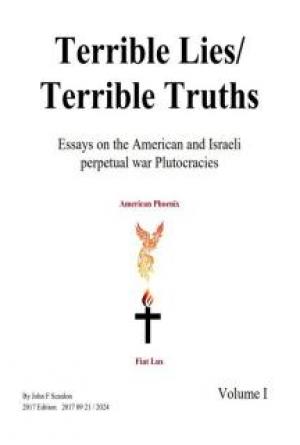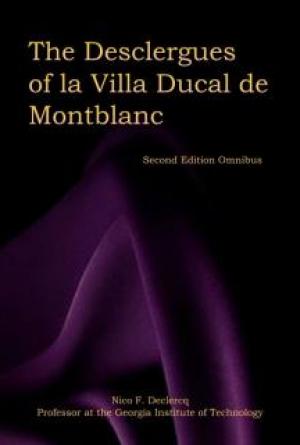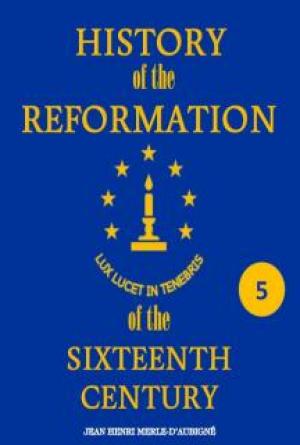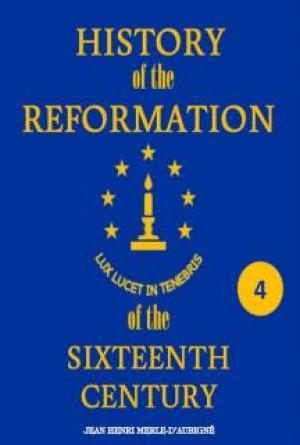true?... But certain it is that the Lords stick wonderful fast to the Commons
and all take great pains."
The entertaining and sensible biographer of James has sketched the
characters of these Whig peers. Aikin's James I. , ii. 238.
[620]
One of these may be found in the Somers Tracts, ii. 470, entitled Tom Tell-
truth, a most malignant ebullition of disloyalty, which the author must have
risked his neck as well as ears in publishing. Some outrageous reflections
on the personal character of the king could hardly be excelled by modern
licentiousness. Proclamations about this time against excess of lavish
speech in matters of state (Rymer, xvii. 275, 514), and against printing or
uttering seditious and scandalous pamphlets ( Id. 522, 616) show the tone
and temper of the nation.
[621]
The letters on this subject, published by Lord Hardwicke ( State Papers,
vol. i.) are highly important; and being unknown to Carte and Hume, render
their narratives less satisfactory. Some pamphlets of the time, in the
second volume of the Somers Tracts, may be read with interest; and
Howell's Letters, being written from Madrid during the Prince of Wales's
residence, deserve notice. See also Wilson in Kennet, p. 750, et post. Dr.
Lingard has illustrated the subject lately (ix. 271).
[622]
Hume, and many other writers on the side of the Crown, assert the value
of a subsidy to have fallen from £70,000, at which it had been under the
Tudors, to £55,000, or a less sum. But though I will not assert a negative
too boldly, I have no recollection of having found any good authority for
this; and it is surely too improbable to be lightly credited. For admit that no
change was made in each man's rate according to the increase of wealth
and diminution of the value of money, the amount must at least have been
equal to what it had been; and to suppose the contributors to have
prevailed on the assessors to underrate them, is rather contrary to
common fiscal usage. In one of Mede's letters, which of course I do not
quote as decisive, it is said that the value of a subsidy was not above
£80,000; and that the assessors were directed (this was in 1621) not to
follow former books, but value every man's estate according to their
knowledge, and not his own confession.
[623]
Parl. Hist. 1383, 1388, 1390; Carte, 119. The king seems to have acted
pretty fairly in this parliament, bating a gross falsehood in denying the
intended toleration of papists. He wished to get further pledges of support
from parliament before he plunged into a war, and was very right in doing
so. On the other hand, the prince and Duke of Buckingham behaved in
public towards him with great rudeness. Parl. Hist. 1396.
[624]
Parl. Hist. 1421.
[625]
Clarendon blames the impeachment of Middlesex for the very reason
which makes me deem it a fortunate event for the constitution, and seems
to consider him as a sacrifice to Buckingham's resentment. Hacket also,
the biographer of Williams, takes his part. Carte, however, thought him
guilty (p. 116); and the unanimous vote of the peers is much against him,
since that house was not wholly governed by Buckingham. See too the
"Life of Nicholas Farrar" in Wordsworth's Ecclesiastical Biography, vol. iv.;
where it appears that that pious and conscientious man was one of the
treasurer's most forward accusers, having been deeply injured by him. It is
difficult to determine the question from the printed trial.
[626]
21 Jac. 1, c. 3. See what Lord Coke says on this act, and on the general
subject of monopolies. 3 Inst. 181.
[627]
P. H. 1483.
[628]
Id. 1488.
[629]
The general temperance and chastity of Charles, and the effect those
virtues had in reforming the outward face of the court, are attested by
many writers, and especially by Mrs. Hutchinson, whose good word he
would not have undeservedly obtained. Mem. of Col. Hutchinson, p. 65. I
am aware that he was not the perfect saint as well as martyr which his
panegyrists represent him to have been; but it is an unworthy office, even
for the purpose of throwing ridicule on exaggerated praise, to turn the
microscope of history on private life.
[630]
War had not been declared at Charles's accession, nor at the dissolution of
the first parliament. In fact, he was much more set upon it than his
subjects. Hume and all his school keep this out of sight.
[631]
Hume has disputed this, but with little success, even on his own showing.
He observes, on an assertion of Wilson, that Buckingham lost his
popularity after Bristol arrived, because he proved that the former, while in
Spain, had professed himself a papist—that it is false, and was never said
by Bristol. It is singular that Hume should know so positively what Bristol
did not say in 1624, when it is notorious that he said in parliament what
nearly comes to the same thing in 1626. See a curious letter in Cabala, p.
224, showing what a combination had been formed against Buckingham,
of all descriptions of malcontents.
[632]
Parl. Hist. vol. ii. p. 6.
[633]
Id. 33.
[634]
The language of Lord-Keeper Coventry in opening the session was very ill
calculated for the spirit of the Commons: "If we consider aright, and think of
that incomparable distance between the supreme height and majesty of a
mighty monarch and the submissive awe and lowliness of loyal subjects,
we cannot but receive exceeding comfort and contentment in the frame
and constitution of this highest court, wherein not only the prelates, nobles,
and grandees, but the commons of all degrees, have their part; and
wherein that high majesty doth descend to admit, or rather to invite, the
humblest of his subjects to conference and counsel with him," etc. He gave
them a distinct hint afterwards that they must not expect to sit long. Parl.
Hist. 39.
[635]
Parl. Hist. 60. I know of nothing under the Tudors of greater arrogance
than this language. Sir Dudley Carleton, accustomed more to foreign
negotiations than to an English House of Commons, gave very just offence
by descanting on the misery of the people in other countries. "He
cautioned them not to make the king out of love with parliaments by
incroaching on his prerogative; for in his messages he had told them that
he must then use new councils. In all Christian kingdoms there were
parliaments anciently, till the monarchs seeing their turbulent spirits, stood
upon their prerogatives, and overthrew them all, except with us. In foreign
countries the people look not like ours, with store of flesh on their backs;
but like ghosts, being nothing but skin and bones, with some thin cover to
their nakedness, and wearing wooden shoes on their feet; a misery
beyond expression, and that we are yet free from; and let us not lose the
repute of a free-born nation by our turbulency in parliament." Rushworth.
This was a hint, in the usual arrogant style of courts, that the liberties of the
people depended on favour, and not on their own determination to
maintain them.
[636]
Parl. Hist. 119; Hatsell, i. 147; Lords' Journals. A few peers refused to join
in this.
Dr. Lingard has observed that the opposition in the House of Lords was
headed by the Earl of Pembroke, who had been rather conspicuous in the
late reign, and whose character is drawn by Clarendon in the first book of
history. He held ten proxies in the king's first parliament, as Buckingham
did thirteen. Lingard, ix. 328. In the second Pembroke had had only five,
but the duke still came with thirteen. Lords' Journals, p. 491. This
enormous accumulation of suffrages in one person led to an order of the
house, which is now its established regulation, that no peer can hold more
than two proxies. Lords' Journals, p. 507.
[637]
Parl. Hist. 125; Hatsell, 141.
[638]
Mr. Brodie has commented rather too severely on Bristol's conduct. Vol. ii.
p. 109. That he was "actuated merely by motives of self-aggrandisement,"
is surely not apparent; though he might be more partial to Spain than we
may think right, or even though he might have some bias towards the
religion of Rome. The last, however, is by no means proved; for the king's
word is no proof in my eyes.
[639]
See the proceedings on the mutual charges of Buckingham and Bristol in
Rushworth, or the Parliamentary History. Charles's behaviour is worth
noticing. He sent a message to the house, desiring that they would not
comply with the earl's request of being allowed counsel; and yielded
ungraciously, when the Lords remonstrated against the prohibition. Parl.
Hist. 97, 132. The attorney-general exhibited articles against Bristol as to
facts depending in great measure on the king's sole testimony. Bristol
petitioned the house "to take in consideration of what consequence such a
precedent might be; and thereon most humbly to move his majesty for the
declining, at least, of his majesty's accusation and testimony." Id. 98. The
house ordered two questions on this to be put to the judges: 1. Whether, in
case of treason or felony, the king's testimony was to be admitted or not?
2. Whether words spoken to the prince, who is after king, make any
alteration in the case? They were ordered to deliver their opinions three
days afterwards. But when the time came, the chief justice informed the
house that the attorney-general had communicated to the judges his
majesty's pleasure that they should forbear to give an answer. Id. 103,
106.
Hume says, "Charles himself was certainly deceived by Buckingham, when
he corroborated his favourite's narrative by his testimony." But no assertion
can be more gratuitous; the supposition indeed is impossible.
[640]
Parl. Hist. 193. If the following letter is accurate, the privy-council
themselves were against this dissolution: "Yesterday the Lords sitting in
council at Whitehall to argue whether the parliament should be dissolved
or not, were all with one voice against the dissolution of it; and to-day,
when the lord keeper drew out the commission to have read it, they sent
four of their own body to his majesty to let him know how dangerous this
abruption would be to the state, and beseech him the parliament might sit
but two days—he answered not a minute."—15 June, 1626. Mede's
Letters, ubi supra. The author expresses great alarm at what might be the
consequence of this step. Mede ascribes this to the council; but others,
perhaps more probably, to the house of peers. The king's expression "not
a minute" is mentioned by several writers.
[641]
Rushworth, Kennet.
[642]
Mede's Letters—"On Monday the judges sat in Westminster-hall to
persuade the people to pay subsidies; but there arose a great tumultuous
shout amongst them: 'A parliament! a parliament! else no subsidies!' The
levying of the subsidies, verbally granted in parliament, being propounded
to the subsidy men in Westminster, all of them, saving some thirty among
five thousand (and they all the king's servants), cried 'A parliament! a
parliament!' etc. The same was done in Middlesex on Monday also, in five
or six places, but far more are said to have refused the grant. At Hicks's
hall the men of Middlesex assembled there, when they had heard a
speech for the purpose, made their obeisance; and so went out without
any answer affirmative or negative. In Kent the whole county denied,
saying that subsidies were matters of too high a nature for them to meddle
withal, and that they durst not deal therewith, lest, hereafter they might be
called in question." July 22, et post. In Harleian MSS. xxxvii. fol. 192, we
find a letter from the king to the deputy lieutenant and justices of every
county, informing them that he had dissolved the last parliament because
the disordered passion of some members of that house, contrary to the
good inclination of the greater and wiser sort of them, had frustrated the
grant of four subsidies, and three-fifteenths, where they had promised; he
therefore enjoins the deputy lieutenants to cause all the troops and bands
of the county to be mustered, trained, and ready to march, as he is
threatened with invasion; that the justices do divide the county into
districts, and appoint in each able persons to collect and receive moneys,
promising the parties to employ them in the common defence; to send a
list of those who contribute and those who refuse, "that we may hereby be
informed who are well affected to our service, and who are otherwise." July
7, 1626. It is evident that the pretext of invasion, which was utterly
improbable, was made use of in order to shelter the king's illegal
proceedings.
[643]
Rushworth's Abr. i. 270.
[644]
The 321st volume of Hargrave MSS. p. 300, contains minutes of a debate
at the council-table during the interval between the second and third
parliaments of Charles, taken by a counsellor. It was proposed to lay an
excise on beer; others suggested that it should be on malt, on account of
what was brewed in private houses. It was then debated "how to overcome
difficulties, whether by persuasion or force. Persuasion, it was thought,
would not gain it; and for judicial courses, it would not hold against the
subject that would stand upon the right of his own property, and against
the fundamental constitutions of the kingdom. The last resort was to a
proclamation; for in star-chamber it might be punishable, and thereupon it
rested." There follows much more; it seemed to be agreed that there was
such a necessity as might justify the imposition; yet a sort of reluctance is
visible even among these timid counsellors. The king pressed it forward
much. In the same volume (p. 393) we find other proceedings at the
council-table, whereof the subject was, the censuring or punishing of some
one who had refused to contribute to the loan of 1626 on the ground of its
illegality. The highest language is held by some of the conclave in this
debate.
Mr. D'Israeli has collected from the same copious reservoir, the
manuscripts of the British Museum, several more illustrations, both of the
arbitrary proceedings of the council, and of the bold spirit with which they
were resisted. Curiosities of Literature, New Series, iii. 381. But this
ingenious author is too much imbued with "the monstrous faith of many
made for one," and sets the private feelings of Charles for an unworthy and
dangerous minion, above the liberties and interests of the nation.
[645]
Rushworth, Kennet.
[646]
See above, in chap. v. Coke himself, while chief justice, had held that one
committed by the privy-council was not bailable by any court in England.
Parl. Hist. 310. He had nothing to say when pressed with this in the next
parliament, but that he had misgrounded his opinion upon a certain
precedent, which being nothing to the purpose, he was now assured his
opinion was as little to the purpose. Id. 325; State Trials, iii. 81.
[647]
State Trials, iii. 1-234; Parl. Hist. 246, 259, etc.; Rushworth.
[648]
At the council-table, some proposing a parliament, the king said, he did
abominate the name. Mede's Letters, 30th Sept. 1626.
[649]
Rushworth; Mede's Letters in Harl. MSS. passim.
[650]
Rushworth's Abr. i. 304; Cabala, part ii. 217. See what is said of this by Mr.
Brodie, ii. 158.
[651]
A commission addressed to Lord Wimbledon, 28th Dec. 1625, empowers
him to proceed against soldiers or dissolute persons joining with them, who
should commit any robberies, etc., which by martial law ought to be
punished with death, by such summary course as is agreeable to martial
law, etc. Rymer, xviii. 254. Another, in 1626, may be found. P. 763. It is
unnecessary to point out how unlike these commissions are to our present
mutiny-bills.
[652]
Bishop Williams, as we are informed by his biographer, though he
promoted the petition of right, stickled for the additional clause adopted by
the Lords, reserving the king's sovereign power; which very justly exposed
him to suspicion of being corrupted. For that he was so is most evident by
what follows; where we are told that he had an interview with the Duke of
Buckingham, when they were reconciled; and "his grace had the bishop's
consent with a little asking, that he would be his grace's faithful servant in
the next session of parliament, and was allowed to hold up a seeming
enmity, and his own popular estimation, that he might the sooner do the
work." Hacket's Life of Williams, pp. 77, 80. With such instances of
baseness and treachery in the public men of this age, surely the distrust of
the Commons was not so extravagant as the school of Hume pretend.
[653]
The debates and conferences on this momentous subject, especially on
the article of the habeas corpus, occupy near two hundred columns in the
New Parliamentary History, to which I refer the reader.
In one of these conferences, the Lords, observing what a prodigious
weight of legal ability was arrayed on the side of the petition, very fairly
determined to hear counsel for the Crown. One of these, Serjeant Ashley,
having argued in behalf of the prerogative in a high tone, such as had been
usual in the late reign, was ordered into custody; and the Lords assured
the other house, that he had no authority from them for what he had said.
Id. 327. A remarkable proof of the rapid growth of popular principles!
[654]
Hargrave MSS. xxxii. 97.
[655]
Parl. Hist. 436.
[656]
Stat. 3 Car. I. c. 1. Hume has printed in a note the whole statute with the
preamble, which I omit for the sake of brevity, and because it may be
found in so common a book.
[657]
Parl. Hist. 431.
[658]
Rushworth Abr. i. 409.
[659]
Parl. Hist. 441, etc.
[660]
Cawdrey's Case, 5 Reports; Cro. Jac. 37; Neal, p. 432. The latter says,
above three hundred were deprived; but Collier reduces them to forty-nine.
P. 687. The former writer states the nonconformist ministers at this time in
twenty-four counties to have been 754; of course the whole number was
much greater. P. 434. This minority was considerable; but it is chiefly to be
noticed, that it contained the more exemplary portion of the clergy; no
scandalous or absolutely illiterate incumbent, of whom there was a very
large number, being a nonconformist. This general enforcement of
conformity, however it might compel the majority's obedience, rendered the
separation of the incompliant more decided. Neal, 446. Many retired to
Holland, especially of the Brownist, or Independent denomination. Id. 436.
And Bancroft, like his successor Laud, interfered to stop some who were
setting out for Virginia. Id. 454.
[661]
Lord Bacon, in his advertisement respecting the Controversies of the
Church of England, written under Elizabeth, speaks of this notion as newly
broached. "Yea and some indiscreet persons have been bold in open
preaching to use dishonourable and derogatory speech and censure of the
churches abroad; and that so far, as some of our men ordained in foreign
parts have been pronounced to be no lawful ministers."—Vol. i. p. 382. It is
evident, by some passages in Strype, attentively considered, that natives
regularly ordained abroad in the presbyterian churches were admitted to
hold preferment in England;







